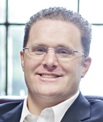By Bob Allen
While many Christians read the Bible as forbidding homosexual acts, a Southern Baptist scholar argues in a recent article that same-sex orientation itself is sinful.
 Denny Burk, professor of biblical studies at Boyce College, the undergraduate arm of Southern Baptist Theological Seminary in Louisville, Ky., said in a blog that he worked on an article appearing in the March 2015 Journal of the Evangelical Theological Society for a little over a year.
Denny Burk, professor of biblical studies at Boyce College, the undergraduate arm of Southern Baptist Theological Seminary in Louisville, Ky., said in a blog that he worked on an article appearing in the March 2015 Journal of the Evangelical Theological Society for a little over a year.
The article titled Is Homosexual Orientation Sinful? addresses neither those who believe sexual orientation is fixed and no more changeable than the color of one’s eyes nor those who believe homosexuality is a choice and that even acknowledging the existence of a sexual orientation concedes too much to the ways of the world.
Instead Burk targets a group “that is on the ascent right now in conservative circles of the evangelical movement,” who believe the Bible clearly teaches same-sex behavior is sinful but are reluctant to say that same-sex attraction itself is sinful.
Burk, author of the 2013 book What Is the Meaning of Sex?, said while he sympathizes with those who don’t want to add another burden to those who continue to struggle against unwanted same-sex attraction, the Bible does not support the view that a desire for sexual activity with a person of the same sex is morally benign.
“In the terms that Jesus teaches us, it is always sinful to desire something that God forbids,” Burk wrote. “And the very experience of the desire becomes an occasion for repentance.”
Burk termed it “pastoral malpractice” to tell someone feeling sexual attraction for a person of the same sex that they need not repent. “In the moment they feel their sexual desire aroused in such a way — in that moment — they must confess the desire as sinful and turn from it,” he said.
He said a common objection — if a person cannot control whether he or she feels a same-sex attraction, then how can it be sinful? — is not how the Bible speaks about sin.
“There are all manner of predispositions that we are born with and that we experience as unchosen realities,” he said. “Nevertheless, the Bible characterizes such realities as sin: pride, anger, anxiousness, just to name a few. Why would we put same-sex attraction in a different category than those other predispositions that we groan to be delivered from and that we are called to repent of?”
The theological basis for Burk’s argument lies in teaching of St. Augustine, a fourth-century cleric credited with developing the doctrine of original sin. Burk said a touchstone of the doctrine is “concupiscence,” a term derived from Latin that means strong sexual desire or lust.
“Augustine sought not only to account for the sinful deeds that we commit but also for the desire that produces those deeds,” Burk explained. “He labeled that desire ‘concupiscence’ and sought to explain from Scripture how Christians should think about their own indwelling attraction to sin.”
Augustine’s opponent — a monk and theologian named Pelagius excommunicated for heresy in 418 — taught that humans are fundamentally good, viewing sin as a voluntary act of free will rather than a nature inherited at birth.
“Augustine famously contended against the error of Pelagianism in favor of a thoroughgoing doctrine of original sin,” Burk explained. “He argued that every human being ever born (save One) inherits both Adam’s guilt and his sinful nature. That sinful nature consists not merely in sinful deeds, but also in sinful desire and inclination.”
Burk said Roman Catholic tradition reflects the view that only conscious acts of the will can truly be deemed to be sinful. The Reformed tradition differs sharply, he said, with John Calvin citing Augustine in declaring “believers, in so far as they are liable to carnal concupiscence, are chargeable with sin.”
For that reason, Burk said, it is problematic for someone to identify as a gay Christian. “To embrace an identity that goes against God’s revealed purpose is by definition sinful,” he said.
Burk said calling same-sex orientation sinful does not make gay people different than everyone else.
“On the contrary, it makes them more like the rest of us,” he said. “We are not singling out gay people as if their experience is somehow more repugnant than everyone else’s experience of living with a sinful nature.”
“All of us bear the marks of our connection to Adam,” he said. “All of us are crooked deep down. All of us have thoughts, inclinations, attitudes and the like that are deeply antithetical to God’s intention for us. All of us need a renewal from the inside out that can come only from the grace of Christ. We are in this predicament together. We do not stand apart.”
Burk said it is naïve to think that everyone tempted by homosexuality is outside the church.
“Is your church the kind of place that would be safe for these dear brothers and sisters to come forward to find friendship and community?” he asked. “Is your home the kind of place that would be safe for these dear brothers and sisters to come forward to find friendship and community? Do your church and your home have arms wide open to them to come alongside them, to receive them, and to strengthen them?”
